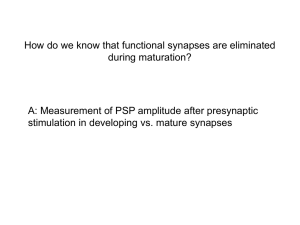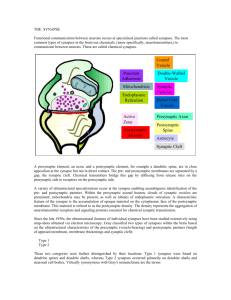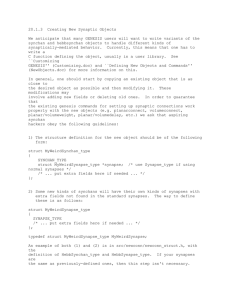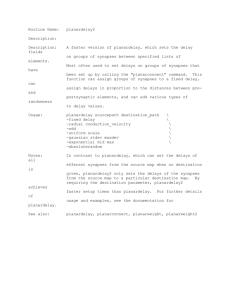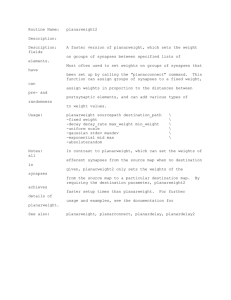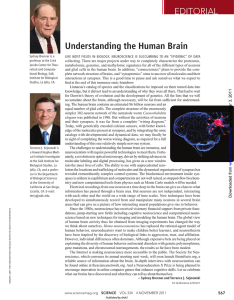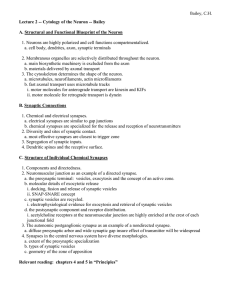Abstract Are Neighboring Synapses Independent? Salk J. Sejnowski
advertisement
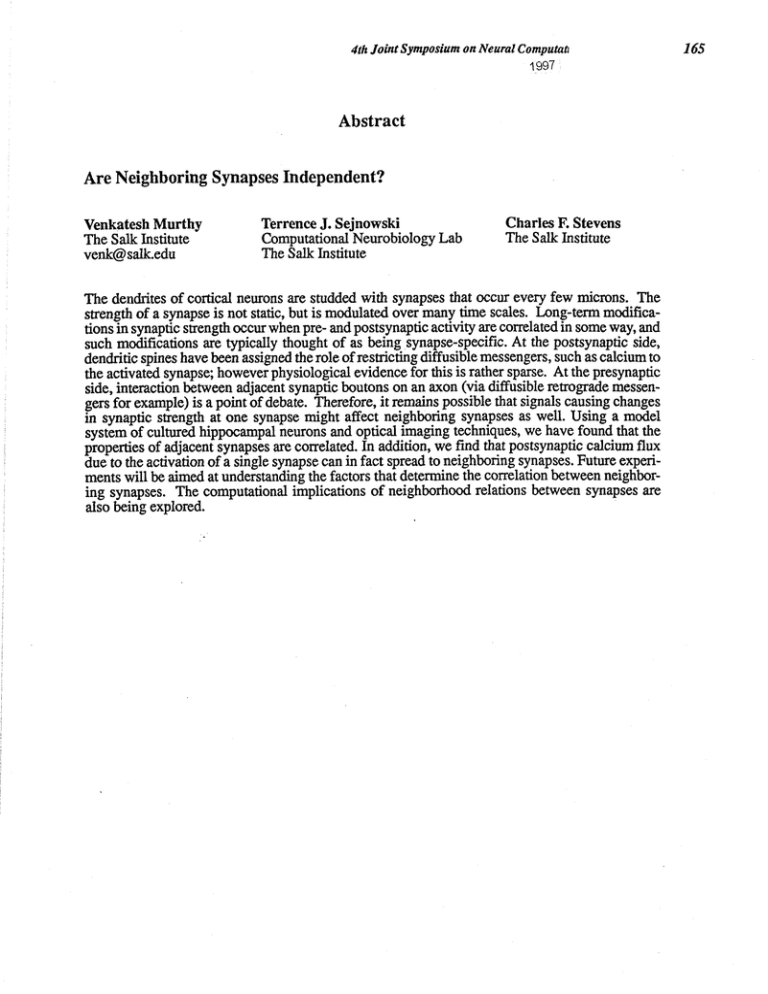
4th Joint Symposium on Neural Computaa 1997 Abstract Are Neighboring Synapses Independent? Venkatesh Murthy The Salk Institute venk@ sallc.edu Terrence J. Sejnowski Computational Neurobiology Lab The Salk Institute Charles F. Stevens The Salk Institute The dendrites of cortical neurons are studded with synapses that occur every few microns. The strength of a synapse is not static, but is modulated over many time scales. Long-term modifications in synaptic strength occur when pre- and postsynaptic activity are correlated in some way, and such modifications are typically thought of as being synapse-specific. At the postsynaptic side, dendritic spines have been assigned the role of restricting diffusible messengers, such as calcium to the activated synapse; however physiological evidence for this is rather sparse. At the presynaptic side, interaction between adjacent synaptic boutons on an axon (via diffusible retrograde messengers for example) is a point of debate. Therefore, it remains possible that signals causing changes in synaptic strength at one synapse might affect neighboring synapses as well. Using a model system of cultured hippocampal neurons and optical imaging techniques, we have found that the properties of adjacent synapses are correlated. In addition, we find that postsynaptic calcium flux due to the activation of a single synapse can in fact spread to neighboring synapses. Future experiments will be aimed at understanding the factors that determine the correlation between neighboring synapses. The computational implications of neighborhood relations between synapses are also being explored.

